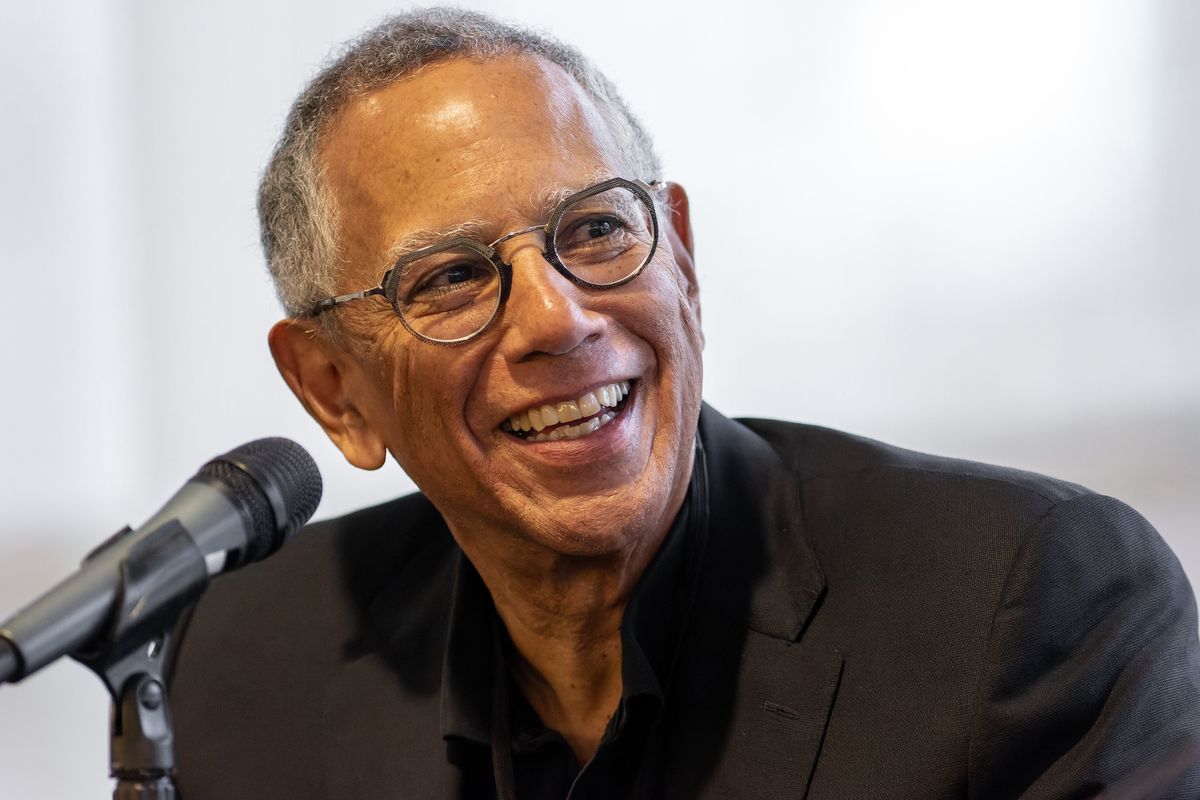WSU hosts former New York Times executive editor for 47th Murrow Symposium

Former New York Times executive editor and Pulitzer Prize-winner Dean Baquet still to this day is driven by one important quality: curiosity.
“The best reporters are open minded, curious about the world and what they will find,” he said. “They go out into the world looking for surprises that illuminate larger truths.”
The Edward R. Murrow College of Communication at Washington State University honored Baquet with the Murrow Lifetime Achievement Award on Tuesday. This award is the highest honor given out at the Murrow Symposium, an annual convention put on by the college where media experts are invited to speak to students and make professional connections. Baquet was this year’s keynote speaker.
A New Orleans native, Baquet was the managing editor for the Los Angeles Times until he was fired for publicly opposing cutting newsroom jobs. He became the Washington bureau chief, then the managing editor and finally the first Black executive editor for the New York Times.

Baquet was excited to speak to students this week, saying he enjoys having conversations with young journalists. He spent some time with a few Daily Evergreen reporters in their newsroom on Monday answering questions about journalism, learning new things from them and seeing how the newsroom operates compared to Los Angeles and New York.
“Every time I come to a college campus, people spend a lot of time thanking me for coming and for interacting with students. All I can tell you is that it just lifts my spirits,” Baquet said. “It makes me feel terrific about the future of journalism.”
Objectivity in journalism was a common thread between panels and Baquet’s keynote.
“To be truly objective, what it really means is you approach a story with empathy and an open mind, and you’re willing to take information in that challenges your beliefs,” he said.
Baquet said he believes no one is truly objective, including himself.
“When I’m editing or reporting a story, I am going into it with baggage,” he said during a panel. “I am a Black man from the South.”
Baquet said stories he was proud of by his reporters at the New York Times were the Harvey Weinstein investigation and the 1619 Project.
“I was deeply involved in the coverage of Harvey Weinstein and Bill O’Reilly, and I don’t know if there’s any question that changed the conversation about workplaces and power imbalances and sexual harassment and worse,” he said.
Baquet believes that young reporters will shape the future of journalism.
Now retired from the executive editor position at the New York Times, Baquet heads a Local Investigations Fellowship through the Times, which helps journalists produce quality investigative work based on their state or region.
“I love journalism in all of its forms, but I love reporting most,” Baquet said. “Some of the greatest fun and most profound moments of my life have taken place with a notebook.”